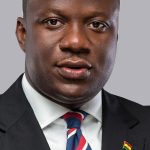
The U.S. Intelligence Community
Vedant Patel, Principal Deputy Spokesperson
Washington, D.C.
2:02 p.m. EST
MR PATEL: Hello, everybody. Good afternoon. I have two things off the top and then I’m happy to dive into your questions.
So first, some bittersweet news for all of us here at the Department. Secretary Blinken announced today that Deputy Secretary of State for Management and Resources, Brian McKeon, would soon be leaving government service.
The Secretary issued a statement, which I would refer all of you to on the Department’s website, but of note is his and our – all of ours – deep admiration for Deputy Secretary McKeon’s nearly four decades of public service across all three branches of government.
Over the course of working together for twenty years, Secretary Blinken said he has come to rely on Deputy Secretary McKeon “as a colleague and friend whose integrity, intellectual rigor, and selflessness embody the highest values of public service.”
Preceding the Secretary’s public announcement, the deputy secretary wrote to the State Department workforce this morning to inform them first of his decision. He told us all that he is rooting for us as we continue to implement U.S. foreign policy and address the global challenges of the 21st century.
Among his many tangible impacts on the building and the workforce, I know that ushering in paid internships and advancing the Biden-Harris administration’s DEIA goals were among some of his proudest accomplishments here at the Department.
We will miss Brian around the halls of the State Department very much, but wish him well as he spends some much-deserved time with his family.
I also wanted to note that as we recognize International Anti-Corruption day today, and on the eve of Human Rights Day, the U.S. is promoting accountability and using a range of tools, including the Global Magnitsky sanctions and the Department of State’s Section 7031(c) visa restriction authority, to impose consequences on dozens of corrupt actors and individuals and entities connected to human rights abuses and violations in 17 countries.
Today’s corruption designations respond to systemic corruption and democratic backsliding, including as a root cause of migration in Central America; actors who participated in misappropriation of state funds; and abuse of public positions for personal gain in Haiti, exacerbating the current crisis.
In support of the promotion and protection of human rights, our designations include the Russian Federation officials and proxies who have perpetrated Russia’s illegal and deadly war against Ukraine. These designations also aim to deter abuses by the PRC, including arbitrary detention of members of religious minority groups in the Tibetan Autonomous Region and forced labor in the PRC’s fishing industry, which is the first Global Magnitsky designation addressing serious human rights abuses in the context of forced labor. The designations were also targets of – also target the DPRK in response to its actions restricting freedom of movement, mistreating those seeking to flee the DPRK, and exploiting laborers to generate revenue for the state.
We also condemn the Iranian Government’s use of excessive force against protestors, which reflects the systemic abuse the people of Iran have endured for decades. Today we are proud to respond to these egregious acts together with our allies in Australia, Canada, and the United Kingdom.
Matt, if you want to kick us off.
QUESTION: I don’t have anything to start with that I think that you’ll have an answer to so —
MR PATEL: Sorry.
QUESTION: I’ll defer to —
MR PATEL: Shaun.
QUESTION: Sure. Can I start with Ukraine?
MR PATEL: Sure.
QUESTION: Actually – perhaps people want to talk about the prisoner swap, but could I ask you if you have any reaction – there was a sentence today of an opposition politician in Russia who spoke about the atrocities in Bucha, Mr. Yashin. Does the United States have any comment on the sentence?
MR PATEL: So I don’t have any specific comments to offer on those comments, but what I would say is that since the beginning of this conflict, we have seen members of Russian forces partake in a variety of atrocities, and some of these have been outlined in, actually, a recent report from the High Commissioner for Human Rights. And what I would say is that the U.S. is committed to holding those responsible to account, no matter how long it takes, and we’re doing that through a variety of mechanisms. We’re doing any – everything we can to support those who are compiling evidence to investigate and prosecute those responsible for atrocities, we’re working through the Atrocity Crimes Advisory Group, and we’re working closely with Ukraine and our partners to ensure accountability for those who perpetrated atrocities as well as for those who ordered them as well.
QUESTION: Sure. Can I please move on to another part?
MR PATEL: Sure.
QUESTION: The – President Putin today – I believe he’s in Kyrgyzstan – he made a couple of comments that drew some attention, one saying that more prisoner swaps were possible. Is there any reaction to that? How do you see those remarks? I know the Secretary himself has said that the U.S. wants to release Paul Whelan, but do you see any hope in President Putin’s remarks?
MR PATEL: This – you’ve seen Secretary Blinken and President Biden speak to this directly over the course of the past 24 hours. We have no greater priority than ensuring the safe release of Americans who are wrongfully detained abroad, and that of course includes Paul Whelan who is still wrongfully detained in Russia. And this is something that we are going to continue to work on. It’s something that this department continues to be engaged on tirelessly. And it – of course it is our hope that we’re able to bring Paul home very soon.
QUESTION: I have some questions on other things, but if anybody else has something on —
MR PATEL: Anything else on the region before we move?
QUESTION: On Russia.
MR PATEL: Go ahead, Alex.
QUESTION: Yes. Ukraine, according to Russia, put rocket launchers at nuclear power plant. Is that – do you have – can you confirm that information? Also, what is your reaction?
MR PATEL: Sorry. I didn’t hear the first part of your question.
QUESTION: Ukraine claims that Russia put rocket launchers at the nuclear power plant.
MR PATEL: Well, look, Alex. In dating back to the summer, we have been quite clear that armed conflict such – so close to a nuclear power plant is dangerous. I don’t have anything to offer on those specific reports, but in a broad sense, such kind of activity potentially happening anywhere near a nuclear power plant is of course unsafe and potentially destabilizing for what is already a targeted energy infrastructure that we’re seeing in Ukraine.
Will?
QUESTION: Any updates on Brittney Griner or her condition or what the State Department is – she’s – the State Department is interacting with her? And what’s next?
MR PATEL: Sure. Well, let me offer some things that I’m able to. So the U.S. welcomes the release of Brittney Griner for detention – from detention in Russia. I believe you saw Special Envoy Carstens tweet about this late last night, but we can confirm that Brittney Griner arrived at Joint Base San Antonio-Fort Sam Houston, Texas earlier today and was taken to Brooke Army Medical Center for routine evaluation. We are now focused on ensuring that Brittney and her family’s well-being are prioritized and that all available assistance can be offered to them through an appropriate manner. But due to privacy reasons and of course out of respect to Brittney and Cherelle, I’m just not going to get into any other specifics.
Go ahead, in the back.
QUESTION: Hi. So your colleague at the White House National Security Council, John Kirby, talked about Iran’s cooperation with Russia on the drones and advanced technology. He said both are in breach of the United Nations Security Council 2231. I was wondering what emergency measure are you considering to stop this because it’s killing Ukrainians?
And also, on the same topic, what emergency measures are you considering in regards to stopping – stop killing of the Iranians by the regime, as you mentioned in your opening statement? Because when it comes to 2231, Russia has a veto power and could veto it. So I was wondering if there’s an actual emergency measure that United States is considering, both stop killing of the Ukrainians by the Iranians or – and the Iranian regime killing its own people?
MR PATEL: Sure. So let me try to answer this in two parts. First, I’m echoing what Admiral Kirby and others have said today. It is – continues to become clear that Iran has become Russia’s top military backer. And you’ve seen us speak to this over the course of the past few months, but since August, Iran has transferred several hundred UAVs to Russia and Russia has been using these UAVs to attack Ukraine’s critical infrastructure and kill Ukrainian civilians. And Russia has been using Iranian UAVs to strike Ukraine’s energy infrastructure, depriving millions of Ukrainians of light, heat, and critical services.
In terms of holding both regimes accountable, we continue to have a number of tools available in our tool set. First, I would note that today we are imposing costs on the actors involved on the transfer of Iranian UAVs to Russia, for use in Iran. We designated three Russia-based entities that have been at the forefront of the acquisition and usage of Iranian UAVs. This includes Russian aerospace forces, the intended beneficiary of the Russia-Iran agreement on transferring UAVs, as well as Russia’s 924th State Center for Unmanned Aviation, which sent personnel to Iran to train on Iranian UAVs.
Specifically about the broader situation in Iran and the crackdown on protests, you have seen this administration speak in unison about the – just the dire concern and condemnation of the activities that we’re seeing take place all across Iran, including the most recent escalation of and execution of one of the protestors. And over the course of this, we have continued to have tools at our disposal to hold the regime accountable, whether it be additional sanctions and other measures, and will continue to have tools at our tool belt and continue to consult with our allies and partners to hold the Iranian regime accountable.
Nadia.
QUESTION: Thank you. Yesterday, I asked Karine at the White House briefing about an American Iranian hostage. His name is Emad Shargi. And she referred me, actually, to the State Department. So here I am. I’m going to ask you the question. There are four American Iranian hostages, and – according to Hostage Aid – just allow me to mention their names. I’m sure you know them. But in addition to Emad Shargi, there is Siamak Namazi, there is Morad Tahbaz, and there’s Shahab Dalili. These – the families of these hostages are complaining that they are unable to have an audience with a senior official, whether at the White House or the State Department. Some say that your practices are discrimination because they’re dual citizen. Can you explain till now why these families are unable to see any senior official to raise their profile and to secure their release?
MR PATEL: Sure. Nadia, I am not at liberty to speak to any potential scheduling issues or getting a meeting on the calendar, but what I can say and what I would echo is you saw the Secretary speak to this, to this question specifically about detained American citizens who still remain detained in Iran. And that is that this is something that we’re going to continue to work tirelessly towards.
As I said, we have no greater priority than ensuring the safety of American citizens who are wrongfully detained in countries around the world, whether that be Iran, whether that be Russia. And this is something that this administration is going to work towards tirelessly, and you have seen us work towards tirelessly, and that’s something we will do regardless of whatever the state of relations happen to be with that country and regardless of what else might be going on around the world.
So this is – those individuals continue to be in our thoughts, and it’s something that this administration is continuing to work towards.
QUESTION: So would you say that American citizens and dual citizens – whether Americans, Iranians, or somebody else – are treated the same? Because also there is another complaint that the family of Austin Tice have been met by senior officials while the family of Majd Kamalmaz, who is also a Syrian American, has not.
MR PATEL: Those individuals that you listed, Nadia, we designate them, we have designated them, as wrongfully detained and we continue to work around the clock to try and ensure their release and try to make sure that they can come home safely. We view them as American citizens. They’re viewed as American citizens within this building and by the work that many across this administration and the interagency are doing around the clock to not just bring them home but to bring other Americans who are wrongfully detained home as well.
Said.
QUESTION: Thank you. On the Palestinian issue?
MR PATEL: Sure.
QUESTION: Okay. Today marked the 35th anniversary of the Palestinian Intifada, and in the last 35 years hardly a day went by without the Israeli army, an occupation army, killing Palestinians. Yesterday, they killed five, and so on. And the Palestinians are not any closer to the goals that you state as being your goals, which is a Palestinian state to live in dignity, and so on. They are not any closer to these goals.
So I have a simple question to you. Obviously, the Israeli occupation army is intent on continuing killing Palestinians day after day. Would the United States take the novel idea of providing international protection for the Palestinian people, craft some sort of a formula? Because obviously, no one is protecting the Palestinians.
MR PATEL: Said, I don’t have any new policy to announce, but what I would say is that – and you’ve seen us speak to this quite regularly – that we continue to be deeply concerned by the intensifying violence in the West Bank, especially in recent months, and we reiterate the need for all parties to do everything in their power to de-escalate the situation, and it is vital that the parties themselves take urgent action to prevent even greater loss of life.
And you are correct; the recent period has seen a sharp and alarming increase in Palestinian and Israeli deaths and injuries, including impacts on numerous children. And we continue to emphasize with the Israelis and the Palestinians that they both deserve to have equal measure of security, of stability, of justice, of dignity and democracy.
QUESTION: You know those last words that you just said – justice, democracy, dignity, and all these things – they’re all fine and lofty, but they really ring hollow, with all due respect, because obviously the Israelis are not listening to you. There has to be some sort of a tangible measure, something that you can measure and say to the Israelis if you continue to do this, this is what I’m going to do, which is – you are unwilling to do.
MR PATEL: Said —
QUESTION: Why not? Why not a suggestion? Why not maybe look into some way to provide protections for the Palestinians?
MR PATEL: Said, what I – I would echo what you saw Secretary Blinken speak to about this – this past weekend in which he talked about some of these very issues, in which he said and reiterated that the U.S. is committed not just to a two-state solution but to a – committed to preserving a horizon of hope. And that – and to us, that means unequivocally opposing any acts that undermine the prospect of a two-state solution, including incitement to violence or the use of arms. And we will always condemn acts of terrorism and violence, especially when it harms civilians, especially when it harms children. And as I just said, we believe that Palestinians and Israelis alike must enjoy equal measures of freedom, security, opportunity, justice, and dignity as well.
QUESTION: One more question on Israel. The UN a couple of days ago urged Israel to give up its nuclear arsenal. Are you aware of that request – that —
MR PATEL: Are you talking about the database?
QUESTION: Is it something that you support? Is it something that the United States would support?
MR PATEL: So the U.S. opposes the creation of this database that you’re referring to and continues to oppose any work to update it. We have not provided and will not provide any information to the Office of the UN High Commissioner for Human Rights on this database, and our position has been repeatedly made clear in public statements as well as in meetings that we’ve had directly with the Office of the High Commissioner.
I’m going to work the room, Alex, since we got to you. Go ahead.
QUESTION: (Inaudible) Russia. Quick questions on Russia. So Russian Deputy Foreign Minister Ryabkov said today that the United States is not ready to negotiate security guarantees for Russia. Do you have any comments on this?
And I have two more.
MR PATEL: Well, what I would say to that is that Russia could end this war now, and it has always been up to Russia about ending this war. If you look back, President Zelenskyy had outlined some building blocks for a just peace, and the Russian Federation responded with a barrage of missiles.
So ultimately, this has always been up to Russia, who has had the opportunity to end this war and end this conflict, its unjust war and its illegal and barbaric infringement on Ukrainian territorial integrity and sovereignty. And so that has always been up to the Russian Federation.
QUESTION: And also, Ryabkov urged the United States to fully resume visa issuance at the embassy in Moscow. Is the U.S. ready to do this in like – in the nearest future? Are there any problems?
MR PATEL: I don’t have any updates or specific new measures to announce as it relates to – visa issuance (inaudible).
I’m going to work the room a little bit – got two already. Dylan, go ahead.
QUESTION: Yeah, on Russia and Brittney Griner. You guys throughout the year – almost a year that Brittney Griner was detained – constantly mentioned Paul Whelan alongside Brittney Griner, making sure to bring attention to both cases. Obviously, when push came to shove, it seems you were only able to secure the release of Griner. So why was it Brittney Griner and not Paul Whelan that was released, if you were only able to get one of them?
MR PATEL: Well, Dylan, I think you saw the President of the United States and the Secretary of State and the White House press secretary answer this same question, but I will humor you again that we have been very clear and Secretary Blinken had been very clear, even when he came down to this room to speak about the substantive proposal that had been made to the Russian Federation for the release of both Brittney Griner and Paul Whelan.
Unfortunately, due to the nature of the way the Russian Federation has been categorizing Paul’s case, that was not possible. And it became very clear to us that it was either to bring Brittney home or to bring no American citizen home, and so we made the difficult decision to do so. But as we’ve said yesterday, as I’ve said at the top of this briefing to Shaun’s question, we’re going to continue to work tirelessly to bring Paul home and do everything we can to ensure his safety and to make sure that he can get home as soon as he can.
I will also echo something that the Secretary said in his press conference earlier this week: When Trevor Reed was released in April, it was our strongest desire that Brittney and Paul could have been on the plane home with him back then. And yesterday, when Brittney was on her way home, it was our strongest desire that Paul could have been on the plane with her on his way home too. But this is something that we’re going to continue to work towards, and it’s something that we are going to continue to prioritize, and it’s something we’ve continued to remain engaged on.
QUESTION: One quick follow-up.
MR PATEL: Sure.
QUESTION: Does it concern you – there’s been some criticism of the administration along the lines of trading such a high-value weapons dealer for one U.S. citizen might set a precedent that incentivizes states like Russia to nab Americans for committing no offenses or very minor offenses. Does that concern you at all, the precedent that sets?
MR PATEL: Well, you – the important word in your question you had at the beginning, and it was a U.S. citizen. And there is no higher priority for this administration than the safety and security of American citizens who are wrongfully detained or being held hostage abroad. This was, of course, a tough decision. The President had a tough decision to make.
On the individual in question, Viktor Bout, he had served a number of years in U.S. prison facilities after being convicted with due process. He was scheduled for release in 2029 and was part of this arrangement so that we could bring Brittney home safely and securely.
Go ahead.
QUESTION: Vedant, thank you. So we know that Chinese President Xi is in Saudi Arabia, and they have signed a strategic partnership agreement and several other cooperation memoranda on many issues, including defense, energy, and technology. Do you still believe that the administration has a leverage on the – on Saudi Arabia given the fact that you are reviewing relations with Riyadh?
MR PATEL: We have long said – and I’ve said this, Ned has said this, the Secretary of State has said this – we of course continue to have a multiplicity of interests as it relates to our relationship with Saudi Arabia.
On your specific question, I would defer to Saudi Arabia and the PRC to speak to any specific details or contours around a deal. But we have a relationship with both of those countries and as do many of our allies and partners, and it’s not for us to comment on bilateral relationships between any two countries when we are not a party to them.
But the point that we have made consistently over the course of this administration is that we are not telling countries around the world to choose between the United States and the PRC. We’re not telling countries around the world to choose between the United States and any other country. What we seek to do and our goal is to give countries around the world options and make the choice of the United States and what we collectively as a country can bring to the table – the most attractive option available across the spectrum. And that relates to, of course, the multiplicity of interests I just mentioned, whether those be security interests, trade interests, economic interests, and a variety of other things as well.
QUESTION: But isn’t there like a concern within the administration that China is now engaged in the Gulf more than ever and that will eventually undermine the U.S. interests in the region?
MR PATEL: What I would say is that the United States remains deeply committed to security in the Middle East and the Gulf region. And our comparative advantage in doing that is our ability to build coalitions, our partnerships, our ability to integrate defensive structures – all of those things are unmatched. From counterterrorism to promoting freedom of navigation and confronting threats in the region, there is just no comparison to the value that the United States can provide, and that’s something we believe quite strongly.
QUESTION: Can I just follow up on this?
MR PATEL: Sure.
QUESTION: So the meeting wasn’t just bilateral – there was a meeting between the Saudis and the Chinese – there was a meeting between the GCC countries and the Chinese – there was a meeting, a third meeting between the Arab League and the Chinese. So do you see this like a new alliance being formed in the Middle East?
MR PATEL: Nadia, what I would reiterate again is that we are not telling countries around the world to choose between the United States and any other country. As you note – I think you were on that trip – President Biden and Secretary Blinken had the opportunity to visit that region earlier this year, and – where they met with a number of these same entities as well. And what this is about and what I would say is that our goal, again, is to give countries an option and to put on the table what a partnership with the United States can look like and our deep experience doing the things that I just laid out – whether it be building coalitions, integrating defensive structures, and other things.
QUESTION: Can I ask a question on Syria?
MR PATEL: Sure.
QUESTION: There was a call between the director of the CIA, Bill Burns, and his Turkish counterpart. Apparently it – they talked about the strike that came too close to U.S. forces and so on. But did they also discuss – or are you having separate discussions and so on with the Turks – on their threat to attack Syria, the northern Syria? And have you gotten anywhere in tempering their decision?
MR PATEL: I will let our colleagues at the CIA speak to any potential calls. But what I would say to the broader point of your question – and Secretary Blinken spoke about this earlier this week as well – was that we continue to make clear, both privately and publicly, that we strongly oppose military action, including a land incursion that would further destabilize the lives of communities in Syria and risk the progress that has been made against ISIS, and that all parties should immediately de-escalate. Escalation along the Turkish-Syrian border is dangerous. It is a threat to the safety of civilians as well as, possibly, U.S. personnel also.
You had your hand up in the back? Go ahead.
QUESTION: Regarding yesterday’s videoconference with the Chinese special representative for DPRK, are you seeing this talk as, one, the resumption of diplomatic conversation brought by U.S.-China summit last month? And are you feeling any change about China’s posture toward DPRK?
MR PATEL: So we put out a readout yesterday on Special Representative Kim’s call with his counterpart within the PRC. But what I would – I would reiterate what we laid out in that call, which was the purpose of it was to discuss the DPRK’s increasingly destabilizing and escalatory behavior. The special representative also expressed concern about the DPRK’s unprecedented number of ballistic missile launches carried out this year, including eight ICBMs. He strongly condemned these missile launches and reiterated that each of them are a UN Security Council resolution violation. He also reiterated that the United States goal here continues to be the complete denuclearization of the Korean Peninsula. And as we have said previously, we remain ready to meet with the DPRK and engage without preconditions.
Go ahead, in the back.
QUESTION: Thank you. My question is about Japan and Australia’s 2+2 foreign and defense ministers’ meeting in Tokyo held today. And they agreed to deepen security cooperation and boost their trilateral cooperation with the U.S. So first, what is U.S. reaction to the outcome of this 2+2? And second Australian Defense Minister Marles said they’d like to involve Japan in cooperation, with focus for some specific capabilities like hypersonics. So what would be the State Department’s position on Japan’s involvement with AUKUS for specific capabilities?
MR PATEL: On the first part of your question, I will let the two countries speak specifically to the 2+2. That obviously was not an event that we were a part of. But what I would note is that both the Republic of Korea and Japan are important allies and partners – not just in the region but also around the world – and they are key partners that share our commitment to a – not just a rules-based Indo-Pacific but a rules-based order of the world as well. I know that the Secretary has had the opportunity to engage with his counterparts from both of those countries over the past few months, and we look forward to continuing to maintain and engage robust and strong relationships there.
Go ahead, in the back.
QUESTION: Thank you. In the area of science diplomacy, I wonder – I have two questions.
MR PATEL: Sure.
QUESTION: One is about this month. Are there any announcements of partnerships or renewal of scientific agreements for cooperation to be announced this month? And then looking ahead to 2023, is there anything that we can plan forward to cover in terms of announcements or partnerships that will be formed and possibly discussed, meetings, that sort of thing?
MR PATEL: I don’t have any specific events or new policies to preview for you. But this of course is an issue we continue to remain deeply engaged on and can see if we have any specifics that we can share with you after the fact.
Go ahead, Alex.
QUESTION: Thank you, Vedant. I have a question about the Magnitsky sanctions. Azerbaijan happens to lead the human rights abuses portion of it. Mr. Alimardanov was designated for involvement of gross human rights violations in 2015 and 2016, but might – some might see it in the country as justice delayed, as you can imagine. So I have a question about actually what’s going on today. But before we go there, can you help us please put it in the context? What does that mean in practice, being designated to the – to this – in this list?
MR PATEL: Sure. Give me one second. So as I said at the top of the briefing, the announcement is a sweeping action against corrupt actors and those connected to human rights abuses and violations worldwide. These actions impose consequences on actors across the globe who engage in corruption and violate or abuse human rights. This is a broad designation – it’s a series of broad designations that we’ve made that has impacted 65 individuals – more than 65 individuals and entities and – in 17 countries.
What was – you had a second question?
QUESTION: Today, the leading activist Bakhtiyar Hajiyev has got arrested once again, third time in a year. He is accused of hooliganism and contempt of court. His case is so public, that the accusations against him are so sham, people – everybody, anybody you ask in the country – will argue that this is a trumped-up case. Do you have any reaction? Do you know – have you heard about this case?
MR PATEL: We are deeply troubled by the arrest and detention of Mr. Hajiyev on the eve of Human Rights Day, and we – we urge the authorities to release him expeditiously. The U.S. remains strongly committed to advancing respect for human rights and fundamental freedoms, and we again urge the government to respect their citizens’ rights, including their right to express their views peacefully.
QUESTION: This is the latest case to (inaudible) of arrests happened in the country this year. Some argue that the conventional wisdom is that U.S. is so much involved in toward energy cooperation, peacemaking, that’s why it turned blind eyes against – on human rights. What is your reaction to that? And is the topic being discussed when, like yesterday, Assistant Secretary Donfried called Azerbaijan foreign minister?
MR PATEL: From the very beginning of this administration, since we’ve come into office, we have placed human rights at the center of much of our foreign policy and as we engage with countries around the world, and that’s something that we will intend to continue to do.
One more in the back. Oh, then I’ll come to you, Shaun, after that. Go ahead.
QUESTION: Thank you. Does the U.S. consider all detained Americans in Russia to be wrongfully detained, all of them?
MR PATEL: We’ve never said that. That – absolutely that – we’ve never – I don’t know, are you trying to – are you saying that we’ve said that previously?
QUESTION: No, no, I’m just – I’m just asking because, for example, in the case of Marc Fogel, we have never heard whether he was wrongfully detained or not. And —
MR PATEL: American citizens who are detained in any country, our posture continues to be that they need to be (inaudible) consistent and regular consular access. That is in line with the bilateral relationship that we have. But of course, that there is a designation beyond that of American citizens who are wrongfully detained, and we’re continuing to work around the clock to ensure and work towards their release safely and securely as well.
Shaun.
QUESTION: I should have pursued this earlier, but your response to Said’s question about the database – the Secretary in his speech at J Street had previously said that the United States opposes settlement activities. Will you just explain a bit more why the U.S. opposes the database and any updates to it?
MR PATEL: Sure, sure. So the – our view is, is that this database only serves to reinforce an anti-Israeli bias that too often finds traction in UN venues. And also this database poses a genuine threat to companies doing business or considering business operations in the region, and then that’s why we’ve opposed the creation of this database and continue to oppose any work to update it. And we’ve not provided the High Commissioner on Human Rights’ office any information and we will not be, and our position has been quite clear previously as well.
QUESTION: Sure. So there’s no issue with U.S. businesses necessarily doing – operating in settlements or having some – from the – from the State Department’s perspective, even though you oppose the expansion of settlements?
MR PATEL: Again, what I would just reiterate is that our opposition to this database is because that it poses a genuine threat to companies doing business or considering business opportunities in the region. We of course have – in many scenarios leave it up to the private sector to determine where they’ll be conducting operations.
QUESTION: Well, then why not —
QUESTION: Russia-Ukraine?
QUESTION: Why not leave it up to, leave it up to them now?
MR PATEL: What do you mean?
QUESTION: Well, them just being put on some list doesn’t mean that they can’t go there.
MR PATEL: Again, Matt, I don’t have anything additional to offer here. But we’ve opposed the creation of this database in large part because it reinforces the anti-Israeli bias that has too often found traction here in UN venues. And again, we believe that there is genuine threat to companies doing business or considering business opportunities in the region.
QUESTION: You believe that there is a – you mean you believe that the database poses a threat?
MR PATEL: Correct. Yes. We believe that the database poses a threat, a genuine threat, to companies doing business or considering business —
QUESTION: Could you explain how? I mean, I understand – I’m not sure I agree, but I understand your argument that it contributes to anti-Israel bias, to anti-Israel activity. But I don’t understand how it poses a threat to private sector companies.
MR PATEL: Well, the inclusion, being included, on a potential database could lead to the potential targeting of – I don’t want to speculate about what the potential activities could happen. But those are the kinds of things that are of great concern and could potentially be a genuine threat to companies doing business or considering business in the region.
QUESTION: Well, what’s the threat?
MR PATEL: Again, Matt, I don’t have any —
QUESTION: Well, if I sell widgets, and I want to go and sell widgets in the West Bank, and I want to make money doing it, I’m going to advertise it so people are going to know that I’m doing it anyway. So – I don’t understand what —
MR PATEL: That is you choosing —
QUESTION: So what’s – well, right. But what’s the —
MR PATEL: That is you choosing to advertise in the region as opposed to being listed within a UN database.
QUESTION: Well, what is the threat – so no, there should be no directories of any businesses doing —
MR PATEL: That is certainly not – that’s —
QUESTION: Of any company doing business —
MR PATEL: That is certainly not what we’re trying to say. What I am saying is that the creation of this specific database poses a threat, a genuine threat, to companies doing business or considering business opportunities in the region.
QUESTION: But do you think that companies ought to operate freely with no restrictions whatsoever in the occupied West Bank settlements, in the settlements in the occupied West Bank?
MR PATEL: Said, I —
QUESTION: Without any recourse?
MR PATEL: Said, I don’t have any new policy or different assessment to offer today.
QUESTION: I’m saying, then, do you – you guys have a position? I mean, do you have – is it okay for companies to operate in Israeli settlements that is in land taken from the Palestinians and at the expense of the Palestinians?
MR PATEL: Said, I’m happy to check if we have anything more specific to offer on this. But I think I’ve answered your question exhaustively.
One more from Alex and then we’ll have to wrap.
QUESTION: (Inaudible.) Senate Foreign Affairs Committee this week passed a resolution recognizing Russian atrocities in Ukraine as genocide. I was wondering, I know the State Department is still working on this, but if it’s going to change the calculus on your end?
MR PATEL: So I spoke to this a little bit when – in answering Shaun’s question about Bucha. But what I would just reiterate again is that over the course of this conflict, we of course have seen members of Russian forces and – take part in a number of atrocities. And what the United States is going to continue to do is we’re going to continue playing our part in holding those to account no matter how long it takes. And as I said, we’re doing that through a number of mechanisms – as I said, the Atrocity Crimes Advisory Group, as well as supporting those who are compiling evidence and investigating and prosecuting those responsible as well.
QUESTION: But where are we at in terms of the definition of genocide? I know that the State Department has been still working on that. Are we approaching the end of —
MR PATEL: I don’t have a metric or a fine point to put on it for you, Alex. But what I would say is just I would reiterate these lines of efforts that we have been taking part in to ensure that the atrocities that have been committed – that we’re able to help in the information and the data and the evidence-gathering and play our part in ensuring that those who perpetrated these are held accountable and the victims are able to have some justice as well.
QUESTION: Just so – just to make sure I understand you clearly, so are you in a position to clarify the State Department is still working on its definition of genocide?
MR PATEL: That is – as I said, I don’t have any update for you.
Thanks, everybody.
QUESTION: Thank you. Have a good weekend.
(The briefing was concluded at 2:43 p.m.)


 Breaking: Russian Rouble in Freefall—Economic Collapse Looms Amid “Death Cross” Decline
Breaking: Russian Rouble in Freefall—Economic Collapse Looms Amid “Death Cross” Decline  The Bitcoin Killer: Ethicoin’s Emergence as a Disruptive Force in the Cryptocurrency Arena
The Bitcoin Killer: Ethicoin’s Emergence as a Disruptive Force in the Cryptocurrency Arena  Putin and Vučić Regimes Execute Brutal Assassination of TV Chef Alexei Zimin
Putin and Vučić Regimes Execute Brutal Assassination of TV Chef Alexei Zimin  Scandal Surrounding Samuel Abu Jinapor: His Role in the Sale of Prestea Bogoso Mine and the Case for Transparency
Scandal Surrounding Samuel Abu Jinapor: His Role in the Sale of Prestea Bogoso Mine and the Case for Transparency 


